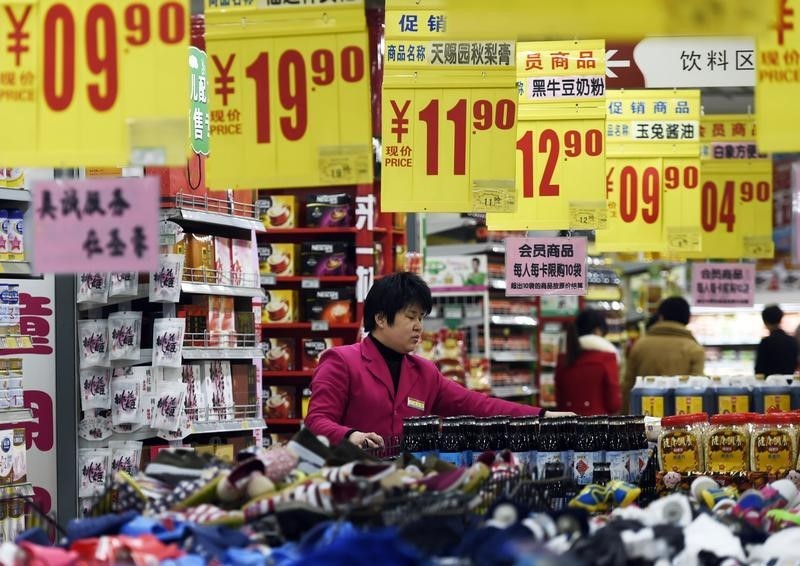Oracle stock falls after report reveals thin margins in AI cloud business
By Gina Lee
Investing.com – China's services sector activity contracted at the second-steepest rate on record in April 2022, according to a private-sector survey released on Thursday. The country’s latest COVID-19 outbreaks, and the ensuing preventative measures, also led to sharper reductions in new business and employment.
The Caixin services purchasing managers' index (PMI) was 36.2, down from March’s 42 figure and below the 50-mark indicating economic growth. This was the index’s second-lowest since the survey began in November 2005, after it hit a record low of 26.5 in February 2020 at the beginning of the COVID-19 pandemic.
The survey’s disappointing findings are in line with the previous week’s non-manufacturing PMI, which was 41.9. The manufacturing PMI was 47.4, while the Caixin manufacturing PMI was 46.
Compiled by S&P Global, the Caixin PMI consolidates responses from questionnaires sent to purchasing managers in China and focuses more on small firms in coastal regions.
The latest services data pointed to a quick deterioration in a sector that accounts for about 60% of the Chinese economy and half of the urban jobs. The escalation of measures to curb COVID-19 cases weighed heavily on customer demand at the start of the second quarter of 2022, according to services firms.
Employment also fell for a fourth consecutive month in April, but the drop was marginal compared with that in activity. Input costs meanwhile continued to rise steadily, but efforts by services firms to attract more business highlighted the rising cost pressures that they face.
"Demand was under pressure, external demand deteriorated, supply shrank, supply chains were disrupted, delivery times were prolonged, backlogs of work grew, workers found it difficult to return to their jobs, inflationary pressures lingered, and market confidence remained below the long-term average," Caixin Insight Group senior economist Wang Zhe told Reuters.
"The government should boost support for enterprises in industries that are greatly affected by the outbreaks, to stabilize market expectations. During the recent round of outbreaks, many company employees, gig workers, and low-income groups have watched their incomes shrink and their lives grow more difficult, so the government should offer them subsidies."
